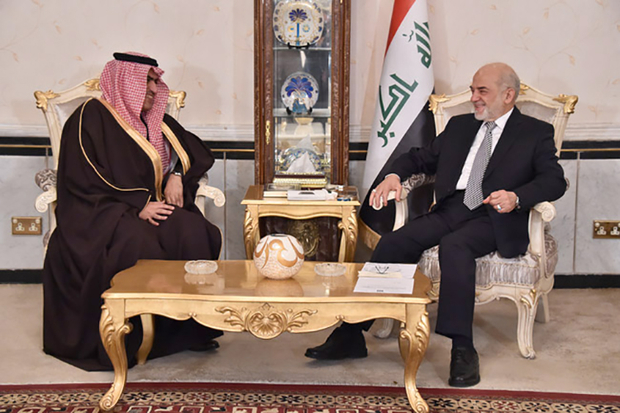Baghdad- Iraq’s request to replace the Saudi ambassador in Baghdad has caused serious debates among Iraqi blocs in the parliament.
National Iraqi Alliance, the largest Shi’ite bloc, had announced its approval of the procedures, while the parliament’s largest Sunni bloc, the Unity Alliance of Iraq, had rejected the request made by the foreign ministry.
The National Alliance issued a statement on Tuesday saying that a party leadership committee held a meeting in the office of the head of the alliance Ibrahim al-Jaafari. The committee welcomed the Iraqi government’s request to replace Saudi Ambassador Thamer al-Sabhan although Jaafari considered that Iraq is keen to maintain successful relations between the two countries.
On the other hand, the Unity Alliance requested the ministry to withdraw the replacement motion. The alliance said in a statement that policies adopted by Iraq are once again creating more differences with Arab countries despite the fact that Saudi Arabia has been very supportive and helpful to the Iraqi people.
The alliance expressed its surprise with such a demand that was sent due to pressures exerted from certain militias that had always threatened Iraqi security.
The statement added that this unprecedented move doesn’t comply with diplomatic traditions.
The alliance announced that the double standards treatment can no longer be tolerated. The statement asked the ministry to withdraw the request, and insisted that such positions should be taken in compliance with all parties in the country and not unilaterally.
Abdullah Zibari, Chairman of the Foreign Relations Committee of the Iraqi Parliament, told Asharq al-Awsat newspaper that the committee represents all Iraqi components and can’t achieve a unified stance in such matters. He added: “At the same time, and no matter what the viewpoints of members are, we act upon a unified vision to improve relations with Saudi Arabia.”
Zibari added that the committee will discuss recent developments and whether they comply with the constitution.
Meanwhile, MP Ala Talabani from the Kurdistan Alliance told Asharq Al-Awsat that the alliance’s firm position is to maintain good relations with all neighboring countries based on common interests.
Talbani said that his bloc is awaiting the Foreign Relations Committee’s assessment of the situation.
In case it didn’t follow the right path, the alliance will have its own stand on the matter, he added.
Political Science professor at University of Baghdad Khalid Abul Ilah said that the problem in Iraq is that there is no clear strategy in the country’s foreign policy.
Abdul Ilah added in his remarks to Asharq Al-Awsat that the way the different parties dealt with the issue of Ambassador Sabhan showed how weak the Iraqi internal structure is.
